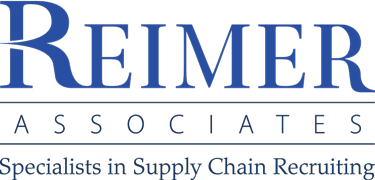“The most difficult subjects can be explained to the most slow-witted man if he has not formed any idea of them already; but the simplest thing cannot be made clear to the most intelligent man if he is firmly persuaded that he knows already, without a shadow of doubt, what is laid before him.” – Leo Tolstoy
Recently a long-time friend asked me for advice about a business decision he was contemplating. He told me he had spent a significant amount of time working on an idea to grow his business, which was already successful. It felt good to be asked my opinion, so I studied the material he shared with me and offered my honest feedback.
To my surprise, he didn’t react as I expected. After asking for my insights and suggestions, he actually pushed back, questioning my ideas and pretty much knocking down my suggestions. Why was he being defensive? Why was he not accepting the honest opinion he asked for?
Over lunch, he said to me, rather sheepishly, “I told myself I wanted your opinion, Ross, but I realize now that what I was looking for was confirmation that my business idea was brilliant. What I wanted to hear was absolute agreement that my idea was a finished product, ready to launch. After all, I had put a lot of time, thought and effort into this idea already.”
I smiled. Yes, there’s a big difference between seeking confirmation instead of advice.
This is called confirmation bias. It’s the tendency to search for, interpret and favour information in a way that confirms our pre-existing beliefs, while giving disproportionately less consideration to alternative possibilities. It’s a normal human tendency that affects even experienced professionals like scientists and researchers.
Many people probably experienced confirmation bias as it relates to the recent U.S. election. They might have had a tendency to seek out news stories and opinion pieces that reaffirm the opinions they already held about one candidate or the other.
Or look at a contentious issue like gun control. If a hypothetical person, let’s call him Bob, supports gun control, he might be more likely to look for stories in the TV news or editorials in the newspaper that reaffirm the need for limitations on gun ownership. And when Bob hears stories about shootings in the news, he interprets them in a way that supports his already existing beliefs.
Suzy, on the other hand, opposes gun control. So she seeks out news sources that are aligned with her long-held position. When she encounters news items about shootings, she interprets them in a way that supports her point of view. A simple but effective example.
As the good book says, “As iron sharpens iron, so one man sharpens another.” This is easier said than done, even though we know in our hearts that it’s the very crux of improving an idea, plan or business venture.
In the world of business, when we seek genuine advice, it usually means we are not quite sure of the course we are charting. Therefore we should seriously consider the feedback we receive when we ask for it from someone we trust. Sometimes we have to swallow our pride and open our minds a little wider to accomplish this.
My friend admitted to me that he is rather impatient. And he really felt that his idea was spot on. He expected me to agree 100% and not come back with ideas for adjustments and improvements. Fortunately he was able to come around and take another look at my advice. At that point he told me he “realized the error” of his ways, and then went back – mostly happily – to the drawing board. Since then, he has told me he’s grateful that I was willing to share my thoughts honestly with him.
This experience made me reflect on my own confirmation biases. Have I ever looked for confirmation when I was ostensibly asking for solid advice? Sure. Like most busy people with many irons in the fire I like to be efficient and get things done as quickly as possible. There is merit in this. However, there’s also a time and place to slow down and open your mind to receive input regardless of how it makes you feel, or what it does to your schedule.
In business and in life, we’re better off if we can recognize our own confirmation bias, and take seriously the advice we ask for.
